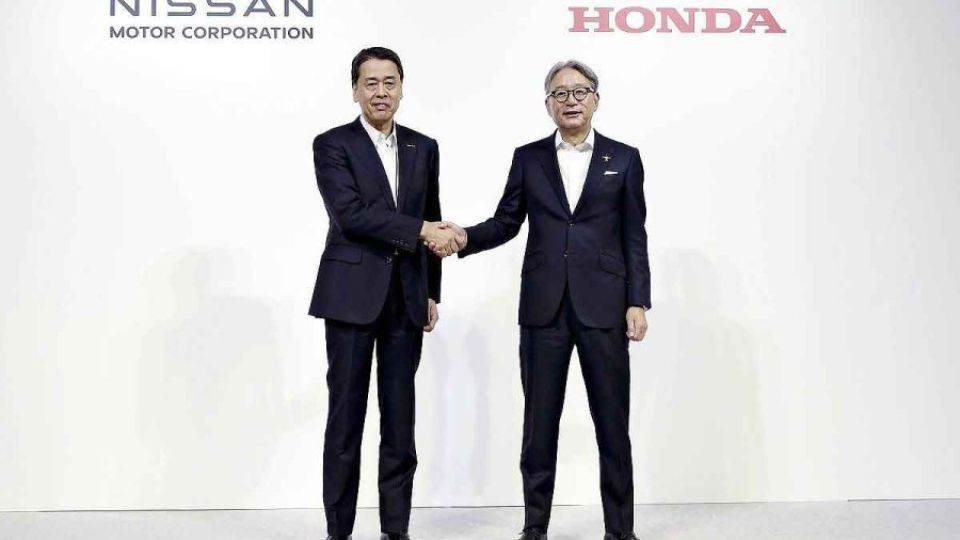December 20, 2024
TOKYO – Honda Motor Co. and Nissan Motor Co. are rushing talks on business integration, concerned that the landscape of the auto industry could be rapidly redrawn by the rise of new star players from the United States and China. There has also been pressure from companies such as Taiwan’s Hon Hai Precision Industry Co., known as Foxconn, which approached Nissan about acquiring a stake in the company.
Even with this possible integration, which is largely seen as Honda saving Nissan, it is still unclear whether the two will survive what has been called a “once in a century” storm for the car industry.
Foxconn looms
In autumn, a source in the auto industry said Foxconn was working behind the scenes to acquire a stake in Nissan. Foxconn, whose main business is in contract manufacturing such as for smartphones, has recently grown more interested in electric vehicles. In 2023, the company hired Jun Seki, a former Nissan executive and former Nidec Corp. president, as its chief strategy officer for EVs to bolster its business in the sector.
Nissan earned a net profit of ¥400 billion in its consolidated results for the fiscal year that ended in March. But in its consolidated midterm earnings report in September, the automaker reported a net profit of ¥19.2 billion, down about 90% from a year earlier.
The slump is largely due to Nissan’s failure to launch hybrid vehicles, which are popular in the North American market.
Nissan’s poor performance has caused its share price to fall sharply. For Foxconn, Nissan has become an affordable investment target.
Foxconn is not the only one putting pressure on Nissan. In November, it was revealed that activist shareholders including several funds were holding Nissan shares.
The Economy, Trade and Industry Ministry and Honda were also aware of Nissan’s predicament. Such external pressures on Nissan are thought to have accelerated ongoing integration discussions with Honda.
“Considering the moves by companies like Hon Hai, we think it would be better if Honda held our shares,” a Nissan executive said this month.
Honda is looking to make all the new cars that it sells either electric or fuel cell-based by 2040.
While sales of its hybrid vehicles are strong, the company plans to pick up the pace on building its foundation for next-generation vehicles, such as electric and self-driving cars.
This is a difficult issue to tackle alone, and Honda has already dissolved a self-driving vehicle partnership with America’s General Motors Co. At the moment, Honda has no suitable partner other than Nissan.
Hopes, concerns
Nissan will be the main beneficiary of the integration if it is realized. With Honda’s support, Nissan will face a lower risk of being taken over by companies such as Foxconn. Nissan’s stock price rose sharply Wednesday.
Nissan has yet to launch a hybrid vehicle in North America, meaning it does not have a “hot seller.” If business integration with Honda goes through, Nissan will be able to launch a hybrid vehicle in the market faster by being given hybrid systems.
For Honda, if it can reduce production costs for its cars by standardizing batteries with Nissan and increasing its economies of scale, it will be able to fight back better against Chinese companies selling cheap EVs.
However, it will take time for the effects to be seen.
One Honda official also offered a warning. “The condition [for the integration] is that Nissan will be thorough in taking restructuring measures,” the official said.
There are also worrying differences in corporate culture between Honda, which has limited its partnerships with other companies to a minimum, and Nissan, which has been collaborating with France’s Renault for around 25 years.

